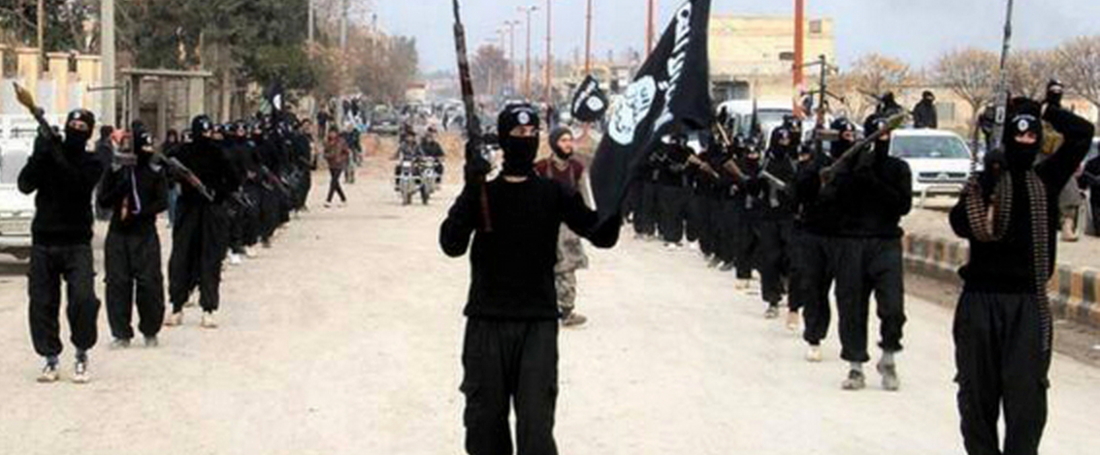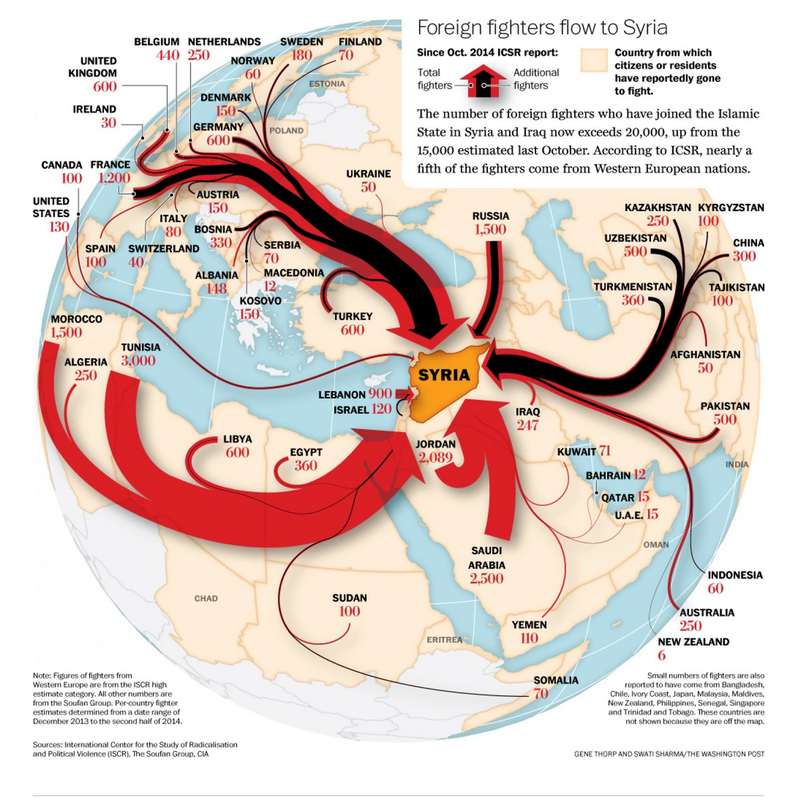|
Grievance - ideology - mobilisation -- those are the three generally recognised stages.
The role of ideological leaders, political or religious are key in the 2nd and third stages. Legally they may do no wrong, but in reality they may provide the human resources necessary for terrorist acts. Their social networks are no doubt a key target for today's intelligence efforts. But if we want to intervene at an earlier stage we have to address grievances.
0 Comments
Indeed we should not counter propaganda with propaganda as discussed in the Economist. Optimistic cover story about Isis. Help is first and foremost coming from Iran to the Shia part of Iraq. Brzezinski worried about Russia mentioning nuclear weapons. German defence minister L says not to underestimate military readiness as regards the Baltic states. B: Risk that Western aid to Ukraine will not be effective L very high costs t. Russia Also sustainable growth in German defence budget. Close to 4 percent more next year. Slow decision-making in NATO? B. Maybe but wait for the US to react... L. And economic sanctions do hurt. B. But Russian action may provoke collapse of Ukrainian economy. L on European army: good to have common labour market - so for defence we can also do more within the framework of the Lisbon treaty. The French German brigade is in Mali. Need to strengthen Tunisia. B. Russia global danger in the sense of producing threats which might damage. Issue not just in terms of Ukraine.Joint interest to resolve. Well maybe with filled refrigerators. But otherwise perhaps not. Or what do you think? 1. From the military, and notably, a NATO perspective, there is a perceived window of danger until the decisions of the Wales Summit have been implemented and Russia denied what is called escalation dominance. Until this is the case (in combination with the ongoing readjustment of defence policies in Sweden, Finland and other non-NATO states) there is a widespread perception that Russia may continue aggressive behaviour also west of Ukraine.
2. From an economic perspective, it is now evidently clear that the combined effect of restrictive policies, the lowering of the oil price and the general lack of engagement with Russia on the side of the West is having devastating consequences for Russian economy. A breaking point may come in a couple years. So far the Russian population is overwhelmingly supporting the official nationalistic policies. But this could change quickly. To quote Richard Swartz: the population may turn their attention from the television set to the refrigerator. Would Russia in such a situation try to project even more strongly an external threat perception in order to increase unity in the country? Already the possibility of such a development must be taken into account - now. Against this background it would seem that the overarching objective of the German and French leaderships is to gain time by trying to engage with Moscow to come through the coming period without turmoil. The posture of the new president of the European Council Tusk, who is likely to take a strong role on the EU level, is going to be very important in this context. Those who are trying to purely isolate Russia may be asking for real trouble from both of these perspective. Instead there is a need to engage with Russia also on the multilateral level, including notably the OSCE. The West is strongly dependent on mutually beneficent cooperation with a stable Russia in the long run. Russia is a global nuclear power. And the humanitarian aspect is already becoming very prominent. Millions suffer in Ukraine and beyond. To be continued - to be sure.  (Photo AP) I will in the coming days and weeks submit a number of comments to the proposed elements for a regional strategy on Syria, Iraq and ISIS/DAESH put forward by the High Representative Mogherini and the European Commission in a communication dated 5 February 2015. This is one of the first examples of what the new leadership would see as a comprehensive approach to external conflicts and crises. Three questions arise: First, does it cover the scope of the current international debate? And secondly, from an EU perspective: does it cover the relevant policy perspectives in EU security policy outlined in the handbook on EU and security which I will publish shortly, based upon many interviews inside the institutions. Third: The EU tried once before in 2013 to put forward a communication on Syria labelled a comprehensive approach to the crisis. To what extent does the new communication represent progress in terms of comprehensiveness? On the issue of the international discourse, a number of detailed presentations of the discussion are available on the web. For the purpose of the discussion of an EU strategy to the crisis a relevant contribution has recently been made by Amir Madani, Huffington Post. In brief, he makes links not least to the following main issues which he characterises as tactical and strategic: -- Military presence to limit the expansion of terrorist acts -- Recognition and engagement with the institutions of the regimes currently in place -- Negotiations with current Syrian institutions -- Iran and the resolution of the WMD issue. -- The resolution of the Palestine Israel issue -- Turkey and its relationship to Europe -- Support to the Iraqi government including in enacting major reforms promoting more inclusiveness. -- Possible regional conference under the auspices of the UN Security Council and including the United States, Europe, China, Russia, and important participation by Iran, Turkey, Egypt and Saudi Arabia. -- Supporting civil society throughout Arabia To what extent does the European Union in its approach to the region include these various elements - and others - into the analysis of its potential comprehensive approach? This I will try to explore in one on my following blog posts in pursuit of an enhanced EU comprehensive approach to external conflicts and crises. The proof of the pudding - after all - is to be found in concrete case studies. That this is a crucial discourse also for the internal security of the EU should not least be obvious from the graph below published recently in Washington Post: |
Archives
May 2015
Categories |

 RSS Feed
RSS Feed